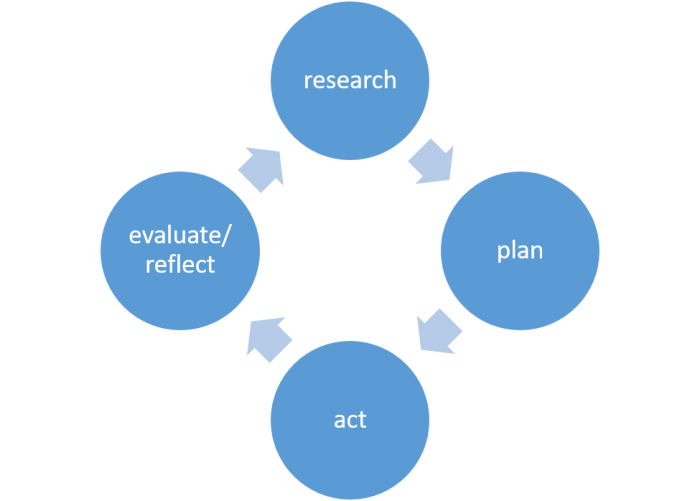It is very interesting these last few years since I left the traditional workplace and started up on my own. I first heard about Agile while at a conference a few years back, it made sense so I went and researched more. Apparently Agile as a practice came from the Tech world, trying to do things faster and slicker but remaining ever so adaptable to change. Let’s face it when it comes to technology things do not stand still long enough for there to be a status quo anymore.
So then, everyone else who actually thought the principles sounded kind of cool, jumped on the bandwagon. The truth is I don’t necessarily think everyone understands what Agile really is. For me to be honest it is very close friend of Action Research in a very accelerated way! I have been known to describe it as Action Research on speed! (OD joke for you right there).
For others it is very much flexible working and the idea of being able to work from anywhere at any time. I see this as just the start…
So what does Agile really mean?
I’d love to say I have found a consistent definition out there, but I haven’t. If you look for agile in the dictionary you get: “move your body quickly and easily” and “think quickly and clearly” (Cambridge Dictionary Online, 2019) https://dictionary.cambridge.org/dictionary/english/agile
If we look at where it started I can clearly see how the word got chosen to describe a new way to develop software. The founders of agile thinking considered developing software quickly, focusing on being adaptable, being able to release things faster and learning from the releases, not needing to be perfect, just willing to learn and adapt along the way.
When you read the Agile Manifesto (http://agilemanifesto.org/), you also find a set of values that define it within their context which you could broaden to the wider organisation:
– Individuals and interactions over processes and tools (can literally stay the same)
– Working software over comprehensive documentation (doing vs documentation)
– Customer collaboration over contract negotiation (customer collaboration, employee engagement, inclusivity)
– Responding to change over following a plan (can also stay the same)
The idea of working in an agile way in simple terms should then focus on more cultural aspects and mindset:
– utting people and connections first whether they are employees or customers
– Work in a more collaborative manner
– Not being afraid to fail, and where possible fail fast to learn and adapt
– No unnecessary meetings, documentations or bureaucracy that will limit speed
So why do I call it Action/ Research on speed:
If you look at Agile as an approach to projects or change it defintately fits the bill of Action Research. To begin with OD values very much match the Agile principles of people first, involvement and collaboration. From a process perspective it is basically a shortened cycle of Research, Plan, Act, Evaluate, and Repeat. The only difference is that in traditional OD the research and plan stage could take a few months, as in Agile they may just take weeks or even days depending on the work. The idea is that after act you can check back and see if it worked or not or what needs fixing and go back to planning and acting!

Based on Action Research Theory. (http://organisationdevelopment.org/five-core-theories-action-research-theory-organisation-development/)
So now that you’ve read this, is your organisation truly Agile?
It’s ok to say no, as long as you know it’s more of a journey than an actual destination… because that is also true in Agile, there is no necessary end point.
Cinthya Quijano, Director of Change Differently Ltd
Twitter: @sustainableOD
LinkedIn: https://uk.linkedin.com/in/cinquijano








